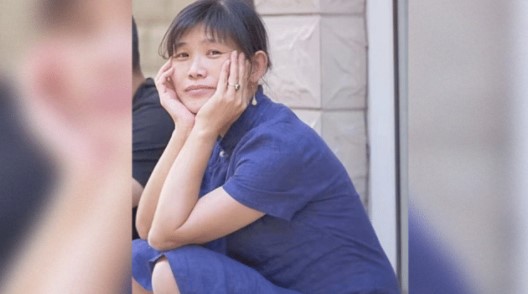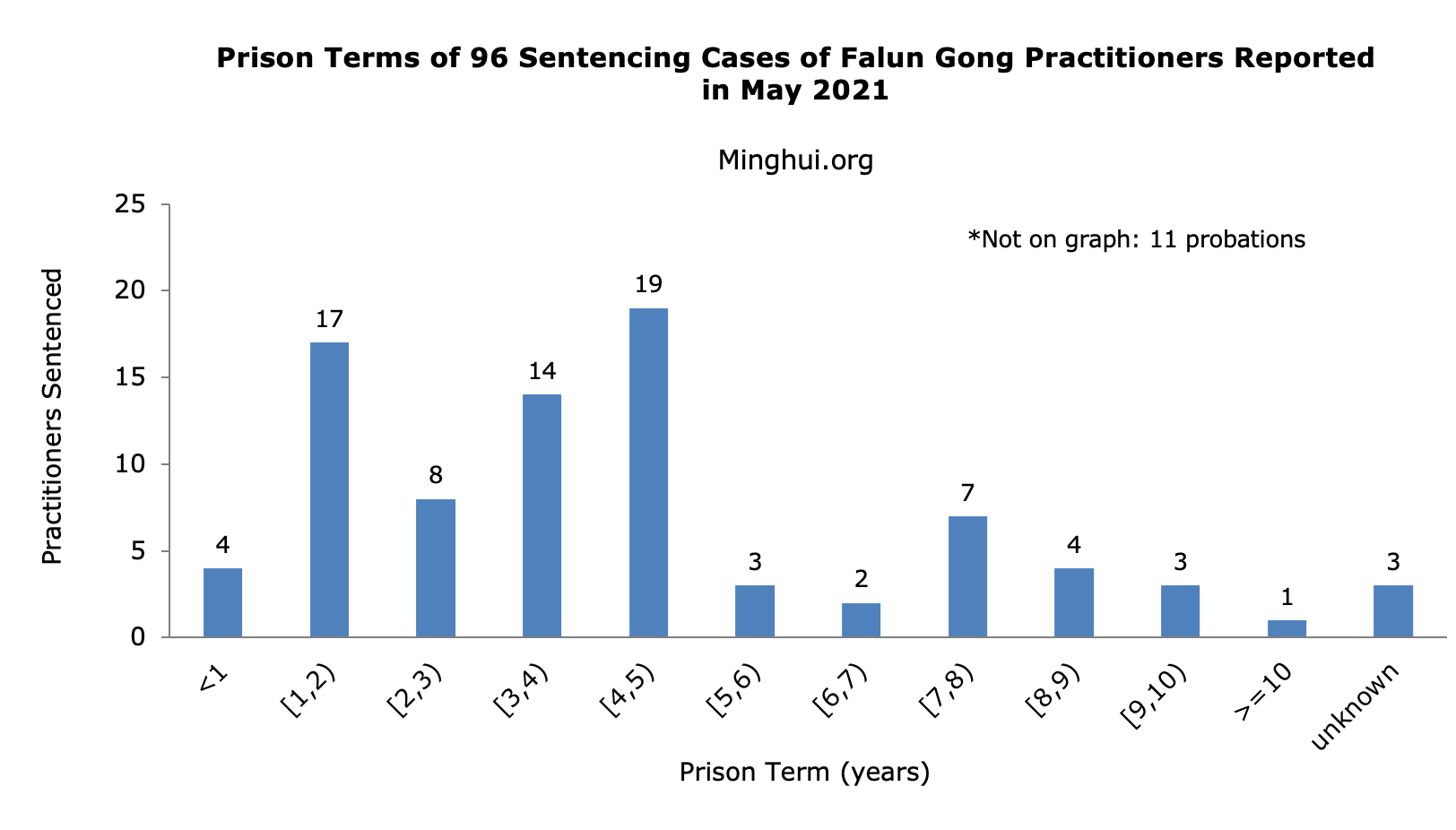|
|
|
|
Dear Reader,
WIDOWED FROM THE PERSECUTION, MS. XU NA WOULD RATHER DIE THAN GO BACK TO BEIJING PRISON. Xu is just one case among the numerous reports of tortured practitioners experiencing unbearable nightmares in Beijing Women’s Prison.
These sentiments echo in Liaoning Women’s Prison, a place notorious for forced labor and egregious abuse of prisoners.
But international entities like the United Nations and the Texas Senate have not been deaf to the cries of Chinese practitioners like Ms. Xu. This month, both actors have released concrete statements regarding the killing of Falun Gong practitioners for their organs and Beijing’s flagrant violations of human rights.
In addition, 96 newly publicized sentencing cases have been unveiled last month. Today we’re giving you personal insight into four of those cases. |
|
|
|
Sincerely,
|
 |
|
Levi Browde, Executive Director
Falun Dafa Information Center
|
|
|
|
|
|
PERSONAL ACCOUNT
|
| Memoirs from a Beijing Women’s Prison: “I wish I was imprisoned in Auschwitz” |
 |
| Mrs. Xu Na is an award-winning artist and freelance writer. In 1995, she began practicing Falun Gong with her husband Yu Zhou, a talented musician in the popular three-person band “Xiao Juan and Residents in the Valley”. Her husband died in police custody just ten days after being incarcerated in 2008, just before the Olympics. He was 42 years old. His death was widely reported by international human rights organizations and Western media, including Amnesty International, the New York Times and the Associated Press.
Xu has been incarcerated twice before. “The purpose of the Nazi’s persecution was to destroy the body of the Jews, but the purpose of the CCP’s persecution is to destroy the spirit and conscience of the people. How I wish I was imprisoned in Auschwitz concentration camp, not a Chinese prison,” she said. “Because in the Nazi gas chamber, people can die quickly, but in the Beijing Women’s Prison, it’s worse to be alive than dead. Repeatedly, you go through long sessions of torture.”
On July 19, 2020, Xu was arrested along with 10 Falun Gong practitioners in Beijing for publishing photos of Beijing devastated by the coronavirus online. Their lawyers were denied certain rights protected by Chinese law, including copying court documents, requesting court documents, as well as being present during important case proceedings. She was indicted on April 2nd, 2021. |
| Read More |
|
|
|
|
INSIDE CHINA
|
| Extreme Brutality Against Practitioners Jailed at Liaoning Women’s Prison |
| Located in the northwestern suburb of Shenyang City, Liaoning Province, is the Liaoning Women’s Prison. It is one of the largest and most notorious prisons in China, known for abusing incarcerated Falun Gong practitioners, and in some cases, causing their deaths.
In addition to the torture and brainwashing, Falun Gong practitioners have also been forced to do slave labor for long hours without pay inside the prisons—producing clothing, textiles, and handicrafts— for both domestic consumption and export. Below are two cases that testify to the ongoing brutality in the Liaoning Women’s Prison. |
| Read More |
|
|
|
|
|
INTERGOVERNMENTAL ACCOUNTABILITY
|
| UN Experts Extremely Alarmed Over Beijing’s Organ Harvesting Industry |
 |
| On June 14, the United Nations Office of the High Commissioner for Human Rights released a media alert urging Beijing to cooperate over allegations of state-sanctioned organ harvesting. Over the credible evidence on state-sanctioned organ harvesting targeting Falun Gong practitioners, many Special Rapporteurs have called on China to promptly respond to the reports and allow independent monitoring by international human rights mechanisms.
“Forced organ harvesting in China appears to be targeting specific ethnic, linguistic or religious minorities held in detention, often without being explained the reasons for arrest or given arrest warrants, at different locations,” they said. “We are deeply concerned by reports of discriminatory treatment of the prisoners or detainees based on their ethnicity and religion or belief.” |
| Read More |
|
|
|
|
|
TEXAS SENATE ACTION
|
| Texas Passed Bill Condemning Forced Organ Harvesting of Practitioners |
 |
|
The Texas State Capitol Building located in Austin, Texas. (Shutterstock/CrackerClips Stock Media)
|
| Senate Concurrent Resolution 3 (SCR 3) articulates that “organs have been harvested from hundreds of thousands of incarcerated people, mainly Falun Gong practitioners.” Prisoners who practice Falun Gong “are the primary victims of forced organ removal and face an elevated risk of dying or being killed in custody.”
From its inception in January, the bill was meant to be a public outcry against this major violation of human rights and an opportunity to “educate Texans about the risks of travel to China for organ transplants to help prevent Texas residents from unwittingly becoming involved in murder in the form of forced organ harvesting from prisoners of conscience.” Following the unanimous support for the bill by the House Committee on State Affairs and Senate Committee on Health and Human Services, Governor Greg Abbott signed SCR 3 into law on June 7.
The law further urges “the United States Congress and the president of the United States to pass laws and adopt measures prohibiting collaboration between U.S. medical and pharmaceutical companies and any Chinese counterparts linked with forced organ harvesting, banning entry into the United States of those who have participated in unethical removal of human tissues and organs, and providing for the prosecution of such individuals.” |
| Read More |
|
|
|
|
INCARCERATION REPORT
|
| 96 More Sentencing Cases Publicized in May |
 |
|
Instant updates on the persecution of Falun Gong are difficult to collect, as many reports are only able to trickle out of the country after months or sometimes even years. These routine delays in reporting are largely due to Beijing’s strict information censorship within China.
Last month, 96 more cases of unjust sentencing were publicized. Of the reported cases, one ensued in 2019, 37 cases were from 2020, and 58 cases originated from the first half of 2021. Several sentences and fines were decided while their families were barred from the court, and following contact attempts by family members after the sentencing were also blocked. In these cases, neither the location nor health status of the practitioners incarcerated are known today.
The average sentence is nearly 4 years, and seemed arbitrarily decided. Some of the elderly practitioners over the age of 75 were sentenced to over eight years on charges of “undermining law enforcement with a heretical organization”, despite that no law has ever criminalized Falun Gong in China, nor has any law labeled it as a heretical organization. |
| Read More |
|
|
|
|

